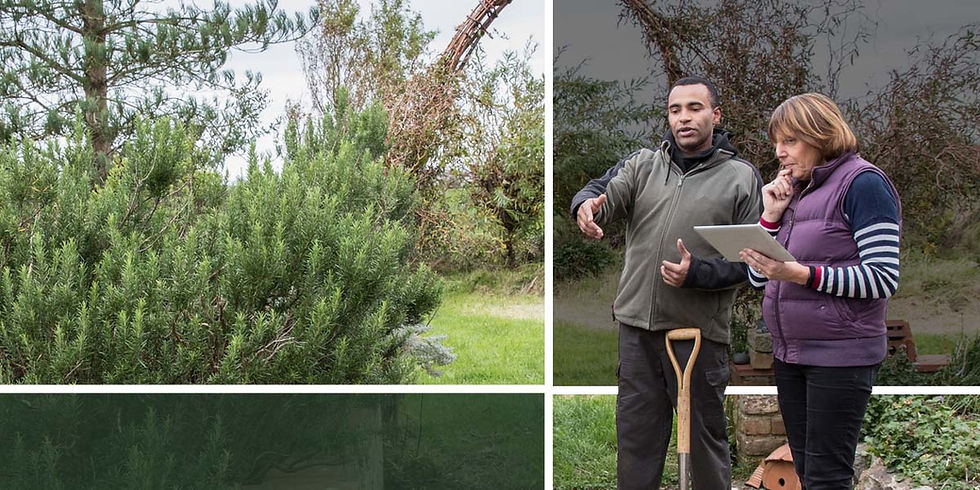5 Plants that Repel Deer in Your Yard
- Rooted in Nature

- Jul 25, 2023
- 2 min read
Updated: Apr 2
Bambi isn’t so cute when he’s chomping away at half your backyard. Deer can be a huge nuisance for Maryland homeowners, but choosing the right plants for your landscape will make sure deer find their snacks elsewhere. Plant a few of these along the borders of your landscape. That includes along fences, near driveways, and at the edges of flower beds. If you have a prized garden feature, surround it with deer-resistant plants to protect it from wandering mouths.

Chives
Chives are a secret weapon for your kitchen and one of the best pest-deterrent plants out there. Their strong smell turns away deer as well as smaller invaders like aphids and Japanese beetles (which are also bad this season due to Maryland's warm winter in 2022.
Other culinary herb options for repelling deer include onions, leeks, dill, mint, and fennel. Save basil and parsley for the grocery store, though, because deer like to snack on those.

Daffodils
Daffodils are an iconic perennial in the United States. Their yellow, star-shaped blooms bring an explosion of sunshine to your garden border. And they’re not just nice to look at. Daffodils contain an alkaloid called lycorine that’s toxic to deer and rabbits.
This is a hardy plant that doesn’t need much fuss, so long as you make sure it’s not sitting in soggy soil. Plant the bulbs in the fall before the ground freezes, and by spring you’ll have beautiful flowers you can cut and bring into your kitchen for some cheer.

Marigold
The golden yellow tones of marigolds are like little sunsets you can look at all the time. These pops of color with carnation-like flowers are relatively easy to care for and can survive intense heat and poor soil.
Marigolds are a powerhouse for pest control. They make a great companion plant for crops like cucumbers, strawberries, and onions that are threatened by harmful nematodes (microscopic worms).

Bee Balm
Bee balm’s showy, eccentric blooms are a crowd favorite for people and pollinators in the neighborhood. It’s a native plant, which means it’s better adapted to the environment and requires less maintenance.
Although bees and butterflies can’t get enough of bee balm’s nectar, deer don’t like the strong smell. Even better, mosquitoes avoid it too. All you need to do to make sure your bee balm thrives is give it plenty of direct sunlight.

Oregano
Oregano is a great addition to Friday night pasta and will help protect your flower bed from hungry invaders. A relatively easy plant to grow, oregano is a good herb for a beginner gardener. If you have a friend who has a plant, you can grow your own from a cutting.
Greek oregano (the most common type) has small, gray-green leaves that produce purple or white buds in the summer. You can grow it as a container plant or even let it spread as edible ground cover. In cooler climates (zone 5-7), though, oregano may need to be moved inside to survive the winter.
We hope this list helps you to naturally and safely keep those pesky deer from nibbling at your garden this year. Should you need help maintaining your summer landscaping, please contact Rooted In Nature today at 443-846-0199 or email info@rootedinnaturemd.com.



Comments